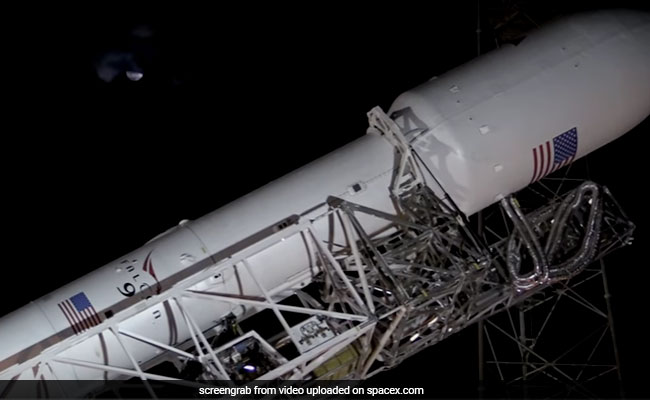SpaceX does things differently than NASA (File)
The
rap on NASA is that it's risk-averse, stuck in the old ways of doing
things, stymied by a big 60-year-old bureaucracy that was chastened by
two fatal space shuttle disasters.That was the mind-set that seemed to greet SpaceX's controversial fueling plan. Instead of filling the rocket with propellant before the astronauts board, the company proposed doing it after.
Loading a combustible mix of propellants underneath NASA's finest set off alarms inside some parts of the agency and among safety experts, who warned that it was contrary to decades of spaceflight procedure. One watchdog group called it a "potential safety risk" - a spark during fueling could set off an explosion, many in NASA feared. That's what happened when a SpaceX rocket blew up while being fueled in 2016.
But then NASA recently announced that it would allow SpaceX's fueling procedure, informally known as "load and go," under the condition that the company demonstrate it five times before receiving formal certification. The decision was a significant one for NASA and signals an ongoing cultural shift as the agency partners with a growing commercial space industry that thrives on pushing boundaries.
NASA's evolution has been years in the making, officials said, as it grows more comfortable giving industry more autonomy and freedom, which many hope will spark the kind of innovation necessary to make spaceflight more routine.
Over the years, it has developed deep partnerships with several companies, awarding them billions of dollars in contracts to carry out crucial services. Under the George W. Bush administration, NASA decided to hire contractors - SpaceX and Orbital ATK - to fly cargo and supplies to the International Space Station.
Then, under President Barack Obama, it awarded contracts to SpaceX and Boeing to fly crews there, with the first flights expected next year. In doing so, the agency allowed the companies to build, design and operate their spacecraft. And while NASA laid out a list of requirements that the companies must meet, it did not dictate how they should meet them.
Being able to rely on private companies to provide a delivery service to the space station "was one of the major shifting factors," said Eric Stallmer, the president of the Commercial Spaceflight Federation. "That played a huge role."
NASA does lend its expertise and oversight, but at the same time, the companies are teaching the agency a thing or two about how to apply business practices to open the frontiers of space. None more so than Elon Musk's SpaceX, which from the beginning of its partnership with NASA ran into resistance, a clash of Silicon Valley-style ethos with government bureaucracy, youthful impatience with aged bureaucracy.
Now President Donald Trump and NASA Administrator Jim Bridenstine have gone out of their way to praise the efforts of private space companies and make it clear that the agency intends to rely on them.
"Rich guys, they love rocket ships," Trump said at a Cabinet meeting this year. "That's good. That's better than us paying for them."
In a statement to The Washington Post, Bridenstine said that industry has had a transformative effect on the agency: "Our commercial partners are challenging us to be more agile, think differently, buy smarter and develop more efficiently."
SpaceX isn't the only company seeing the benefit of NASA's shift. The agency is being far more welcoming to private-sector input in the first component of its proposed lunar gateway program, a space station to float in the vicinity of moon

No comments:
Post a Comment